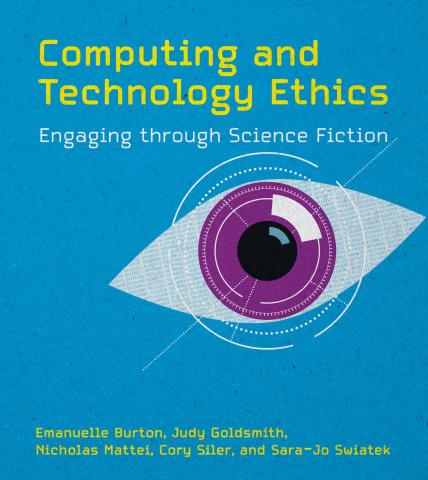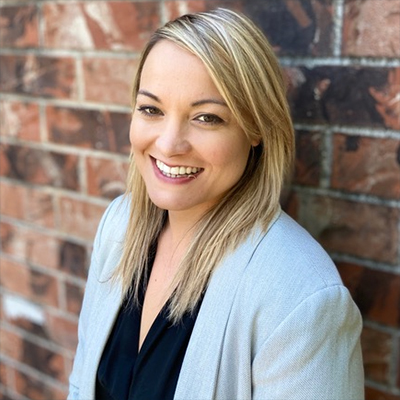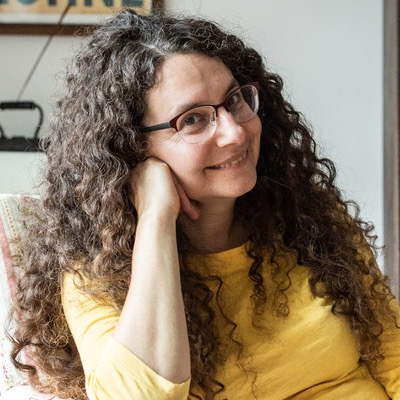Alumnae Publish on Computing and Technology Ethics
University of Chicago Divinity School Alumni Emanuelle (Mandy) Burton (PhD'15) and Sara-Jo Swiatek (PhD'22) have published a textbook entitled: Computing and Technology Ethics: Engaging through Science Fiction. Dr. Burton is currently a Lecturer in the Department of Computer Science at the University of Illinois Chicago, where she teaches courses in ethics; Dr. Swiatek is currently an adjunct professor in the Department of Theology and Religious Studies at Seattle University and online adjunct instructor for Central Methodist University.
Below, Drs. Burton and Swiatek talk about the genesis and achievements of their new book.
Q. What is the book about -- and who is the intended audience?
Sara-Jo Swiatek:
In addition to an introduction to ethics, the textbook includes an anthology of short fiction stories, pedagogy guides, and commentary on the main professional codes of conduct that technicians, programmers, and designers are expected to know.
The book is mainly directed at computer science students, but there are sections and chapters that are relevant for people working in engineering or design, or really anyone interested in ethical issues related to computing technology.
Mandy Burton: Yes, I would say our target audience is computer science students, but additionally, computer science instructors. A lot of computer science ethics education, whether it is ad hoc or a structured course is offered by people trained in computer science, who are not necessarily trained in ethics or any other humanistic discipline. Part of what we understood to be our task when writing the textbook was to create a teaching resource that would support and propel instructors who are not trained in humanistic pedagogy or in ethical reflection to move their classes beyond what might occur in the limited sphere of what computer science as a discourse field makes available.
Swiatek: Ethics education was not always part of the Computer Science curriculum.
Burton: That’s right. A lot of places still do not require it. University of Illinois at Chicago, where I am currently teaching, had it part of the curriculum early and I know ABET requires it, but plenty of computer science do not seek ABET education. ABET, of course, predates computer science. (ABET, the Accreditation Board for Engineering and Technology, Inc.) is a non-governmental organization that accredits post-secondary education programs in applied and natural sciences, computing, engineering and engineering technology.)
Whatever the case, ethics education is not residual yet. It is one of those things that might be residual in 10 years. In many ways, what computer science is as a discipline is still taking shape, which means that this is an interesting moment to intervene with a textbook. To be sure, there is already an existing canon of textbooks, but what it means to teach ethics in this field is still in flux.
Q. Talk a bit about the process for writing this unique book.
Burton: Religious studies sets us up to pay attention to the fundamental architecture of how we are putting the world together. It requires us, demands of us, that we pay attention both conceptual apparatuses and practices, and that matters. But also, that there is the dimension of the lived, you can’t fix everything with your brain. If you think you can, then there is a lot you are not going to see, and even if you could fix everything with you brain, there is a lot you are not going to see about not only about what went wrong, but how it went wrong, or why it went wrong.
Swiatek: I agree. It seems to me that thinking with religious traditions and against them requires a kind of synthetic thinking that isn’t always part of an analytic approach to ethics. Additionally, I believe my background in both theological and philosophical ethics has helped me to see that ethical thinking cannot easily be disconnecting from world building and meaning making.
One thing that writing a textbook does is that it makes you responsible for communicating to your audience. This is hard. It is probably something everyone should learn to do, whether you are working on a textbook or not, partly because it is hard and unpleasant, but also because it cuts against the grain of our academic training.
I will readily defend the idea that it is a necessary part of education to figure out how to talk about the things in a way that isn’t going to be available to most people, apart from specialists. Thinking is hard. As a scholar, you get use to digging deep into specialist tunnels and you go to unavailable places in service of getting better at that. But at some point, in some way, rubber needs to make contact with a broader road. The goal in many ways is always to return to the conversation, to use the terms that are already available to other people. I don’t think it is a bad goal for scholars to be able to do this at least some of the time.
Burton: I have a very broadly virtue ethics approach to ethics education, the cultivation of sensitivities and capacities are really important for ethical education. Judgements, at least bad judgments, are easy. Gaining knowledge and information is important, even necessary. But I am more interested in helping our students become alert to the kinds of information and knowledge that exists and curious about and willing to take responsibility for building their knowledge and increasing it. Who knows what is going to matter down the road.
Swiatek: This is especially important in technology ethics. With the rate at which tech is changing, you always need to be adjusting and thinking on your feet.
Burton: Yes, and this is why having a sympathetic imagination is crucial. That you, as you sit in your chair can imagine yourself in a different situation, certainly people are not like you live through certain things or within certain sociotechnical arrays. A good piece of fiction asks you to inhabit complicated worlds alongside other people.
Swiatek: Whether it stems from virtue ethics or not, a strong ethical education, it seems to me, provides a method for reading that attends to various layers of complexity as well as resources that help individuals and groups practice responsibly respond in spite of that complexity.
Q. What are you most excited to share about this publication?
Burton: The chapter on Privacy and Personhood completely restages the way practitioners tend to conceptualize and reason about privacy. Questions about privacy are not just about selling your data, or who has the right to your data. Embedded in this issue are questions about how we conceive of the self and how we inhabit a world. If the textbook gets widely adopted, I think this is going to become part of the baseline in a way that it just hasn’t been.
Swiatek: Our chapter on ethical frameworks is an important contribution. There are so many applied ethics textbooks out there that make it seem like deontology and utilitarianism, or deontology and consequentialism, are the two main approaches to ethics. Virtue ethics has gained some popularity over the last couple of decades, but the tendency has been to introduce normative ethics by comparing and contrasting watered-down versions of deontology and utilitarianism: the former is about rule governed action and the intentions behind actions and the latter is about consequences and maximizing happiness. Such comparisons may work for thinking about individual action in highly contained environments, but they are not especially helpful when trying to evaluate the norms and values at work within ever expanding sociotechnical systems. Rather than reducing ethical thinking to fit one of two molds, we offer various ways to approach ethics. But we are not dismissive of classical texts in ethics either. We cover deontology and utilitarianism in the textbook—as well as communitarianism and virtue ethics—but they are introduced as different frameworks for ethical thinking. And rather than oversimplify, we introduce different traditions within each of the frameworks in order to show that these frameworks have a history, tensions within them, and therefore cannot possibly yield answers to specific moral conundrums or get programmed into a machine.
We also make a point to discuss some of the recent criticism and responses to classical ethical theories, including responsibility ethics, feminist ethics, and capability ethics. We figured it was best to equip our readers with a wealth of resources for dealing with the kind of complex problems that we are faced with today.
Burton: In terms of the breath of the theories, communitarianism, contemporary responses, reframing them around the traditions, this is the best introduction to the three classical theories that I’ve ever seen. When considered alongside the other chapters, the stories, and the guides, I think we have meaningfully raised the bar for ethics education in the field in multiple registers.




